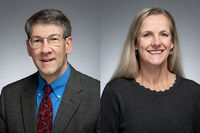Our genes shape our gut bacteria, new research shows
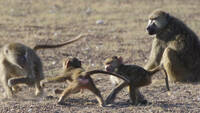
In the study, published recently in Science, researchers discovered that most bacteria in the gut microbiome are heritable after looking at more than 16,000 gut microbiome profiles collected over 14 years from a long-studied population of baboons in Kenya’s Amboseli National Park.
Veselik named assistant dean of undergraduate advising; Robichaud to direct undergraduate studies in biology
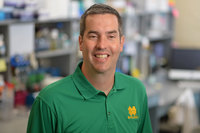
David J. Veselik, associate teaching professor and director of undergraduate studies in the Department of Biological Sciences, has been named assistant dean of undergraduate advising for the University of Notre Dame College of Science, effective July 1, 2021.
Is targeting human cells, rather than the virus itself, key to preventing the next pandemic?
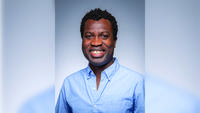
Geoffrey Siwo, research assistant professor in the Department of Biological Sciences at the University of Notre Dame, realized there may be a way to develop therapies for new viruses. Rather than target a virus, he is looking at methods to stimulate the natural antiviral defense systems present in all cells and that can work broadly against a wide variety of viruses … known, unknown, and mutant.
First College of Science Diploma Ceremony highlights personal and scientific achievements
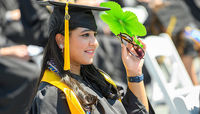
The University of Notre Dame College of Science hosted its first ever college-wide undergraduate diploma ceremony on Saturday, May 22, 2021, honoring the 455 students who were conferred Bachelor of Science degrees.
New minor in science and patient advocacy added for Fall 2021
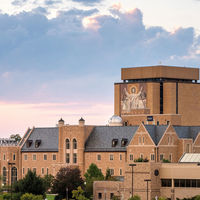
The University of Notre Dame College of Science will begin offering a new minor in science and patient advocacy beginning with the Fall 2021 semester.
In memoriam: Kenyon S. Tweedell, professor emeritus of biology
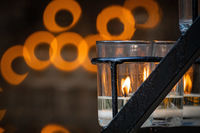
Kenyon S. Tweedell, a professor emeritus of biology who taught and conducted research at the University of Notre Dame for 34 years, died March 30. He was 97.
Climate change can reduce the success of interventions that combat infectious disease
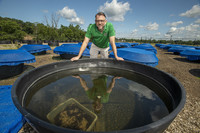
Research from the lab of Jason Rohr, the Ludmilla F., Stephen J. and Robert T. Galla College Professor of Biological Sciences, and collaborators, published recently in Proceedings of the National Academy of Sciences (PNAS), demonstrated significant findings about when to target interventions that control the spread of the tropical disease schistosomiasis.
Three-part Zoom series, “Neuroscience and (your) Behavior,” to launch in March
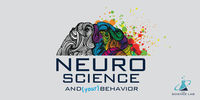
An online, synchronous three-part series, "Neuroscience and (your) Behavior) will be held on Thursdays from 11:30 a.m. to 12:30 p.m. on March 18, 25, and April 1, and will be led by Nancy Michael, associate teaching professor and director of undergraduate studies for Neuroscience and Behavior.
Climate change effects should be evaluated seasonally, 42-year study shows
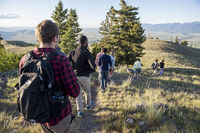
A 42-year study of bunchgrasses in Montana’s National Bison Range by researchers at the University of Notre Dame showed that several vegetation changes occurred seasonally, suggesting that studying climate change on a large-scale, annual basis may not be enough to fully understand and document its effects.
Similar pesticides show consistent effects on freshwater ecosystems
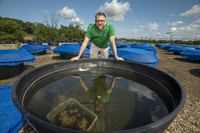
Hundreds of different chemicals exist for managing a variety of agricultural pests, but a new study from the University of Notre Dame showed that evaluating their effects on freshwater ecosystems could be streamlined if the compounds were evaluated in broad classes and types, rather than individually.
Two Notre Dame professors listed as Highly Cited Researchers for 2020
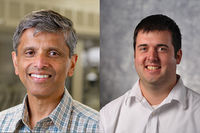
Stuart Jones and Prashant Kamat, both professors in the College of Science at the University of Notre Dame, have been named Highly Cited Researchers by Clarivate Web of Science.
Neuroscientist Michael earns outreach award from the Society of Neuroscience

Nancy Michael, associate teaching professor of neuroscience and behavior at the University of Notre Dame, earned a Next Generation Award from the Society for Neuroscience (SfN) for her community-based learning programs and course for undergraduates that matches students with community partners that serve a vulnerable local population.
Cancer cells mediate immune suppression in the brain
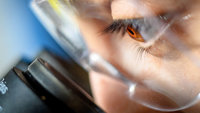
In newly published research in the journal Cell, researchers showed that one type of cell important for immunity, called a myeloid cell, can suppress the immune response — which has the effect of allowing breast cancer cells to metastasize to the brain to form secondary tumor cells there.
Light pollution may increase biting behavior at night in Aedes aegypti mosquitoes
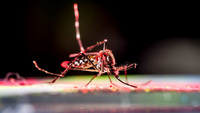
Artificial light abnormally increases mosquito biting behavior at night in a species that typically prefers to bite people during the day, according to research from the University of Notre Dame that was published in The American Journal of Tropical Medicine and Hygiene.
Nathan Swenson, tree ecologist, to join biology department and lead UNDERC
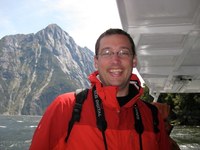
Nathan Swenson, a professor in the Department of Biology at the University of Maryland, has been named a professor in the Department of Biological Sciences and the Gillen Director of the University of Notre Dame Environmental Research Center (UNDERC).…
Undergraduate students find summer research opportunities through “old-fashioned” methods

With COVID-19 upending many summer research opportunities, several College of Science students found meaningful work through traditional means, like cold calls and networking.
What are the keys to success at Notre Dame? The 2020 valedictorian and salutatorian share their tips
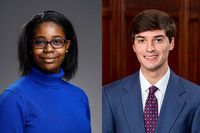
“If I have any message to incoming students, it’s to absolutely do what you love,” said Brady Stiller, valedictorian of the University of Notre Dame class of 2020. “You don’t have to decide on a certain path — just be yourself, and study what you’re interested in.”
Study sheds light on immune response in Mycobacterium avium Complex infection

A study completed at the University of Notre Dame in the laboratory of Jeff Schorey, the George G. Craig Jr. Professor of Biological Sciences, ashowed for the first time how RNA sensors drive a response in T-cells in one of a disease related to tuberculosis, Mycobacterium avium Complex (MAC).
Common cholesterol drugs could slow spread of breast cancer to brain
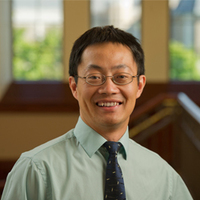
A new study from the University of Notre Dame shows drugs used to treat high cholesterol could interfere with the way breast cancer cells adapt to the microenvironment in the brain, preventing the cancer from taking hold. Patients with breast cancer who experience this type of metastasis typically survive for only months after the diagnosis.
Rohr to succeed D’Souza-Schorey as chair in Department of Biological Sciences
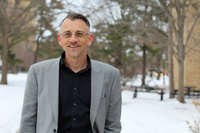
Jason Rohr, the Ludmilla F., Stephen J., and Robert T. Galla College Professor of Biological Sciences, will step into the role of chair of the department effective July 1, 2020.
Rare penile cancer requires a combination of cancer treatments

Men with penile squamous cell cancer could benefit from a combined approach to their cancer therapy, because targeted chemotherapy or immunotherapy alone – which may work for other kinds of cancers – is not effective for this cancer, according to a study by University of Notre Dame researchers and collaborators.
In Memoriam: Clarence "Earl" Carter, assistant dean in the College of Science
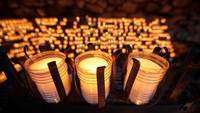
Clarence “Earl” Carter, 61, assistant dean for faculty affairs and special projects in the College of Science, died unexpectedly on Thursday, May 14, at his home.
Notre Dame’s Nora Besansky elected to National Academy of Sciences
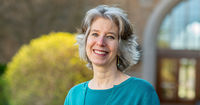
Nora J. Besansky, O’Hara Professor in the Department of Biological Sciences at the University of Notre Dame, has been elected to membership in the National Academy of Sciences (NAS).
Why are our lower jawbones fused? It’s all about strength, study finds
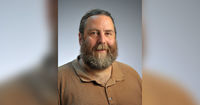
Using testing methods more common in engineering research, Professor Matthew Ravosa, in the Department of Biological Sciences, determined that the lower jawbones of certain primates – including humans – are stronger than those of their “cousins” because the bones are fused.
Online biology courses engage students, mimic real life
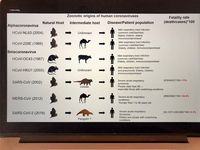
Using various online tools and unique classroom exercises, professors in the Department of Biology continue to deliver quality education to students during e-learning, caused because of the COVID-19 pandemic. And Hawk Assistant Professor Ana Lidia Flores-Mireles' class, with its focus on infectious diseases, is able to learn about the virus in different ways.
University of Notre Dame-developed home lead screening kits shown to be highly accurate
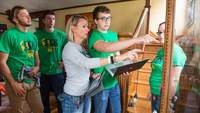
An inexpensive lead sample collection kit distributed to homes in St. Joseph County is comparable in accuracy and sensitivity to more costly in-home analysis, according to research published this month in the Journal of Environmental Research.
Notre Dame science alumnus inducted into the National Academy of Sciences
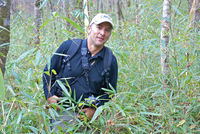
James Elser '81, who majored in biology at the University of Notre Dame, became a member of the National Academy of Sciences (NAS) in 2019.
Study: Transmission of river blindness may be reduced when vegetation is removed

A University of Notre Dame research team used mathematical modeling, which showed combining mass drug distribution with removing vegetation may be the quickest way to curb transmission.
Notre Dame biologist to study the role of woody vines in tropical forests

Tropical forests absorb more carbon than any other system, and therefore help regulate the earth’s climate. Lianas — woody vines — that surround trees in these forests have been shown to slow rates of tree growth, but their role hasn’t been fully studied.Tarzan may find lianas in the jungle useful, but David Medvigy, associate professor in the department of biological sciences, intends to find out what they add or take away from these ecosystems.
